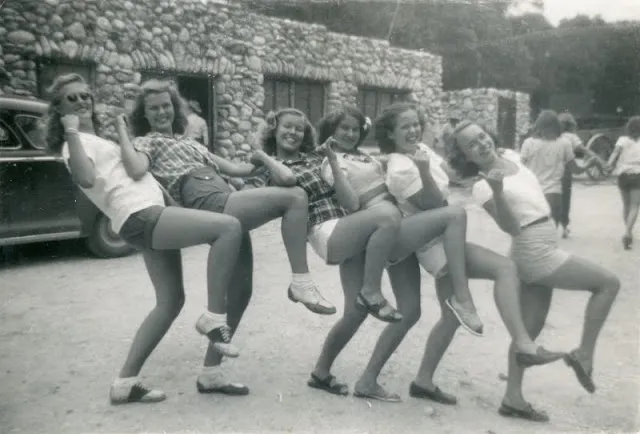Britain has one of the most innovative and vibrant youth cultures in the world. It has come to define post-colonial British identity and it has helped to make London the cultural and commercial capital of Europe. This course will examine the history, sociology, aesthetics and economics of British youth culture, from the early days of jazz and rock ‘n’ roll, through to Beatlemania, Punk, Britpop, Rave and the latest contemporary developments.
By the 1960s, the first teenage generation free from conscription emerged in Britain. Young people were finally given a voice and freedom to do what they wanted. The parents of the Sixties teenage generation had spent their youth fighting for their lives in the Second World War and wanted their own children to enjoy their youth and be able to have more fun and freedom. By the early 1960s, teenagers were already significantly different to those of a decade ago.
These interesting vintage photographs were taken by photographer Roger Mayne that show London youth culture scenes from the late 1950s to early '60s.
 |
| Teenage boy, October 15, 1959 |
 |
| Teddy boys on a corner, Southam Street, 1956 |
 |
| Teddy girls, Battersea Fun Fair |
 |
| Southam Street, London |
 |
| Southam Street, London |
 |
| Southam Street, London |
 |
| Girl, Soho, October 14, 1959 |
 |
| Hampstead Heath Fair, 1961 |
 |
| Boys gambling, Princedale Road, April 15 1956 |
 |
| Couple Jiving, "Teenage night", April 7 1961 |
 |
| Girl, Beaulieu Jazz Festival, July 29 1961 |
 |
| Couple, Richmond Jazz Festival, July 1962 |
 |
| Southam Street, London |
 |
| Two teenagers, Soho, October 14, 1959 |
 |
| Rockers on motorcycles, Brixton, 1963 |
 |
| Jivers, Richmond Jazz Festival, July 1962 |
 |
| Jivers, Richmond Jazz Festival, July 1962 |
-1708106582.jpg)


